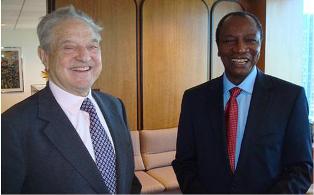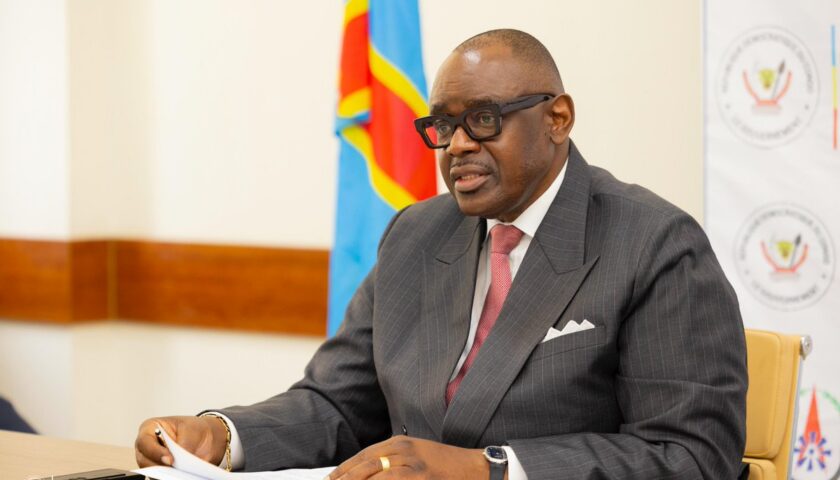According to a government document seen by Reuters, Israeli former civil servant Asher Avidan has been banned from entering or remaining in the country as of February 15.
LONDON (Reuters) – Posted: Friday , 22 Mar 2013

George Soros & Guinea’s President Alpha Condé
The president of BSG Resources, the mining arm of billionaire Beny Steinmetz’s business empire, has been barred from Guinea, where the company is battling a review of its right to mine half of the giant Simandou iron ore deposit.
According to a government document seen by Reuters, which cited « measures of domestic security », Israeli former civil servant Asher Avidan has been banned from entering or remaining in the country as of Feb. 15. The government decision was confirmed by sources with direct knowledge of the matter.
Guinea, which is aiming to clean up a minerals sector that has been mired in corruption, is currently reviewing mining contracts. Officials said last year that the review would focus on three of the largest contracts, including BSGR and partner Vale‘s rights to the northern half of Simandou.
That review was originally due to be completed by March, but BSGR, Vale and the government are still in negotiations. The three held talks in London this week, one of the sources said.
The government has denied « stigmatising » BSGR, but the barring of the company’s president raises questions over the group’s hopes of having its mining rights confirmed.
BSGR declined to comment on the ban.
Guinea’s government also declined to comment, but a source close to the government said Avidan’s residency permit had been cancelled after actions that the source said were not compatible with his status as a businessman. The source did not elaborate.
The source said no other BSGR executives had been affected by the move, adding that the ban was not related to the Simandou review process or BSGR’s commercial operations in the country.
Work on the northern half of Simandou has been on hold since last year, when Vale cited uncertainties in regulation. Worries over the government’s intentions have prompted BSGR to say it would consider all legal options.
The government is considering three options in its review of that Simandou contract, including confirming it, agreeing changes to the contract or simply revoking BSGR’s rights.
TOUGH TIMES
The BSGR review comes at a tough time for both the industry and producing nations, as mining companies find themselves under pressure to tighten spending, particularly on large projects in untested destinations like Guinea.
Rio Tinto, which is working on the southern half of Simandou, has slowed development there until the government can secure financing to push ahead with expensive infrastructure.
BSGR was awarded the concession to mine what is one of the world’s largest untapped iron ore deposits in 2008, just months after it was revoked from Rio Tinto by the then government of long-ruling leader Lansana Conte. Conte accused Rio, who initially held all of Simandou, of moving too slowly.
BSGR was not required to pay any cash up front and was given permission to export via Liberia, a much shorter and less expensive route than exporting across Guinea. Critics say that would limit the economic benefits for Guinea.
In return, BSGR agreed to build a $1 billion passenger and freight railway from the capital Conakry on the west coast to Kerouane in the south east. It later sold 51 percent of the project to Vale in a deal valued at $2.5 billion, of which $500 million has been paid so far.
BSG and Vale say their concession represents a fair deal for Guineans, and the export route through Liberia makes better economic sense than shipping ore across Guinea.
But the terms have been widely criticised by advocates of government transparency, who say the authorities should have secured a better deal.




